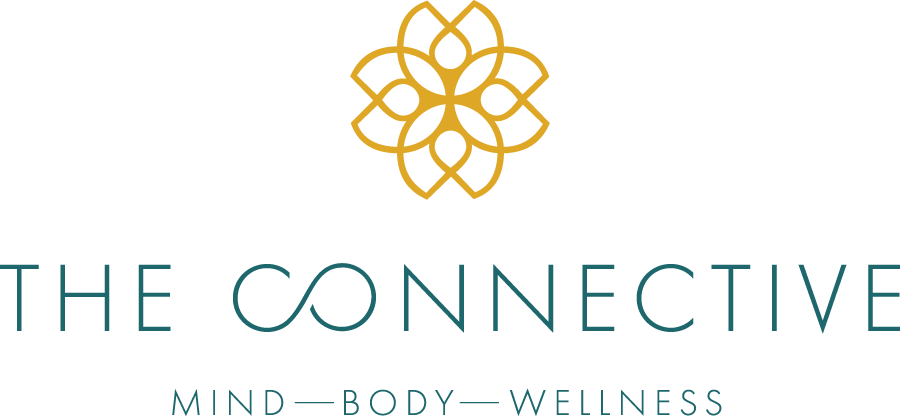
about

Our Approach
to Wellness
At the Connective, we practice from an “integrative” lens, meaning we utilize several different therapeutic modalities in our work to attend to the individual needs and personalities of our clients, while also holding the inherent wholeness and interconnectedness of each person. These modalities weave and work together to create a more comprehensive picture of wellness and approach to healing.
We are a collaborative strengths-based practice. We will listen deeply to you as we create a collaborative plan to help you hone in on and build upon your personal strengths and natural resilience.
Therapeutic Modalities we use:
EMDR
Eye Movement Desensitization and Reprocessing is a psychotherapy approach used to treat trauma and PTSD. It involves guided eye movements (or other bilateral movements) to help process distressing memories and alleviate emotional distress. EMDR aims to facilitate the reintegration of distressing memories, fostering adaptive coping mechanisms & psychological healing.
Cognitive Behavioral Therapy (CBT)
Cognitive Behavioral Therapy is a psychotherapeutic approach that focuses on identifying and changing negative thought patterns and behaviors. It emphasizes the connection between thoughts, feelings, and behaviors, aiming to break unhelpful cycles. It is an evidence-based approach used to support various mental health concerns and helps individuals develop more adaptive coping strategies,improving their overall well-being.
Mindfulness-Based Approaches (DBT, ACT, MBCT)
Mindfulness-based approaches to psychotherapy involve incorporating mindfulness techniques, such as meditation and heightened awareness of the present moment, into therapeutic practices. These approaches, including Dialectical Behavior Therapy (DBT),Acceptance + Commitment Therapy (ACT), Mindfulness-Based Cognitive Therapy (MBCT), aim to help individuals develop a non-judgmental awareness of their thoughts and emotions. By fostering mindfulness, these therapies seek to reduce stress, enhance self-awareness, and promote psychological well-being.
Positive Psychology
Positive Psychology is a branch of psychology that studies and promotes positive aspects of human experience, such as happiness, well-being, and strengths. It emphasizes the cultivation of positive emotions, engagement, relationships, meaning, and accomplishments to enhance overall life satisfaction. Positive Psychology seeks to shift the focus from solely addressing mental health issues to fostering individuals' positive attributes and enhancing their overall quality of life.
Somatic / Body-Centered Therapy
Somatic Therapy is an approach to psychotherapy that places emphasis on the connection between the mind and the body, recognizing the role of bodily sensations, movements, and experiences in mental health. Practitioners often work with clients to explore and release tension, trauma, or emotional issues stored in the body through techniques such as Somatic Experiencing, breathwork, and movement. This therapeutic modality aims to enhance self-awareness, promote healing, and improve overall well-being by addressing the physical manifestations of psychological distress.
Narrative Therapy
Narrative Therapy is a form of psychotherapy that views individuals as the authors of their own life stories. It involves exploring and reshaping the narratives people construct about their experiences, emphasizing the power of language in shaping perception and identity. Through collaborative conversations, clients are encouraged to reframe and reconstruct their personal narratives, empowering them to see alternative perspectives and create positive change in their lives.
Humanistic + Person-Centered Therapy
Humanistic + Person-Centered Therapy is an approach, developed by Carl Rogers, that emphasizes the importance of empathy, unconditional positive regard, and genuineness in therapeutic relationships. It focuses on the client's self-exploration and self-actualization, allowing individuals to tap into their inner resources for personal growth. The therapist creates a supportive environment where clients can freely express themselves, fostering a process of self-discovery and promoting psychological well-being.
Gottman Based Couples Therapy
Gottman-Based Couples Therapy, developed by Drs. John and Julie Gottman, is an evidence-based approach that aims to enhance relationship satisfaction and address conflicts within couples. It utilizes extensive research findings to identify relationship patterns and behaviors, emphasizing the "Sound Relationship House" model that includes aspects like communication, emotional connection, and conflict resolution skills. The therapy focuses on fostering positive interactions, strengthening friendship, and helping couples develop the skills needed for a resilient and fulfilling relationship.
EFT Couples Therapy
Emotionally Focused Therapy (EFT) for couples is a therapeutic approach that centers on understanding and transforming the emotional dynamics within relationships. Developed by Dr. Sue Johnson, EFT focuses on attachment theory, helping couples identify and express their underlying emotions and needs. The therapy aims to create secure emotional bonds, improve communication, and foster a deeper connection between partners, ultimately leading to a more satisfying and resilient relationship.


